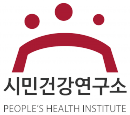한국사회에서도 건강불평등을 이야기한지 오래 되었고 관련된 연구도 많아졌지만 과연 불평등이 해결될 수 있을까 하는 질문에는 쉽게 답하기가 어렵습니다.
무엇보다도 이 사회가 불평등을 어떻게 인식하고 있고 불평등이라는 현상이 어떤 기전을 통해 사회와 개인들의 상호작용으로 나타나고 있는지를 알지 못하고 있다는 생각도 듭니다.
그 한 걸음을 걷기 위해 연구소에서 함께 ‘Handbook of the Social Psychology of Inequality’ 라는 책을 읽어보려고 합니다.
“불평등이라는 사회현상을 사회와 개인이 어떻게 인식하고 재생산하며, 그 결과는 어떻게 나타나고 있는가”
라는 궁금증을 해소하는데 조금이나마 도움이 될 수 있기를 기대하며 관심있으신 분들과의 북세미나를 제안합니다.
- 일시: 격주 목요일 오전 10시-12시 (3월 26일 첫 모임 시작)
- 장소: 시민건강증진연구소 세미나실
- 인원: 7명 이내 (수강인원 초과시, 신청 마감 후 무작위 추첨)
- 북세미나 진행방법: 참여자 내에서 챕터를 나누어 매 회 3~4 챕터씩 발제
- 신청방법: 신청하기 클릭 (마감일: 3월 16일)
- 문의: 박유경 연구원 070 8658-1848
목차 (각론은 선별하여 읽을 예정)
Part I Orienting Perspectives and Concepts
1. Status
2. Theoretical Perspectives on Power and Resource Inequality
3. Stigma and Social Inequality
4. Inequality: A Matter of Justice?
5. Intersectionality
Part II Creating, Reproducing, and Resisting Inequality
6. Constructing Difference
7. Dramaturgy and Dominance
8. Language and Talk
9. Social Capital and Inequality: The Significance of Social Connections
10. Social Justice in Local Systems of Interpersonal Influence
11. Theoretical and Substantive Approaches to Socialization and Inequality in Social Psychology
12. Self, Identity, and Social Inequality
13. Emotions and Affect as Source, Outcome and Resistance to Inequality
14. Ideologies
15. Legitimacy and Inequality
Part III Contexts of Inequality
16. Unequal but Together: Inequality Within and Between Families
17. Schools
18. The Social Psychology of Inequality at Work: Individual, Group, and Organizational Dimensions
19. Social Psychological Processes in Studies of Neighborhoods and Inequality
Part IV Dimensions of Inequality
20. The Social Psychology of Gender Inequality
21. Ethno-Racial Attitudes and Social Inequality
22. Current Theorizing and Future Directions in the Social Psychology of Social Class Inequalities
23. The Social Psychology of of Immigration and Inequality
24. The Life Course and the Social Organization of Age
25. Sexualities
Part V Outcomes of Inequality
26. Social Movements and Social Inequality: Toward a More Balanced Assessment of the Relationship
27. Social Inequality, Crime, and Deviance
28. Health Inequalities
